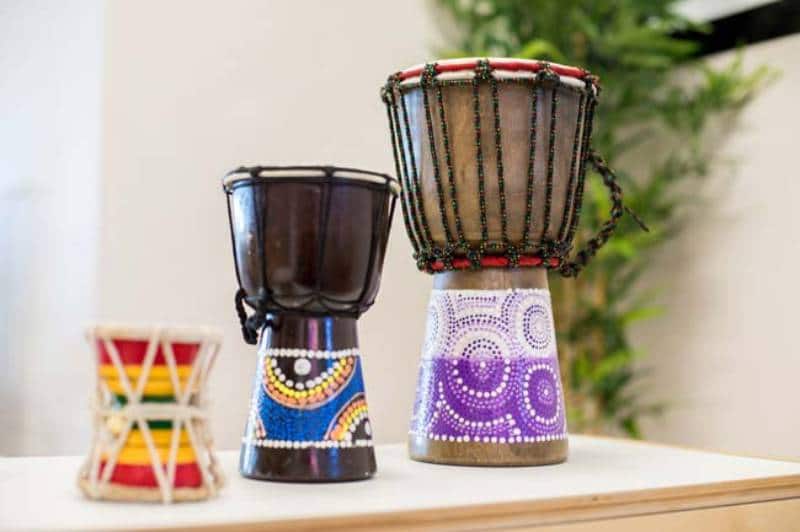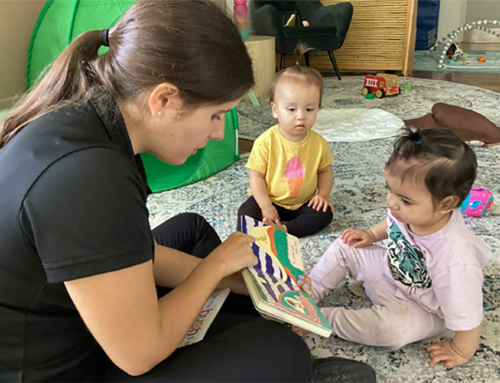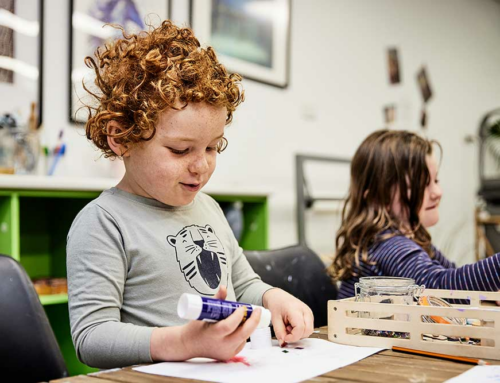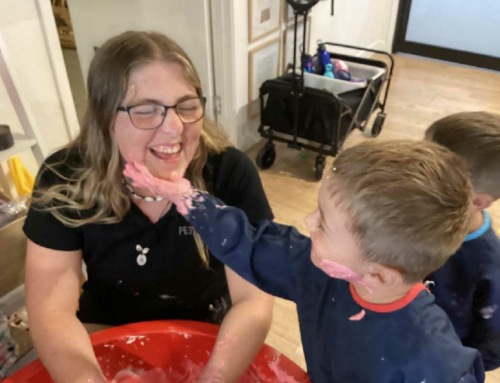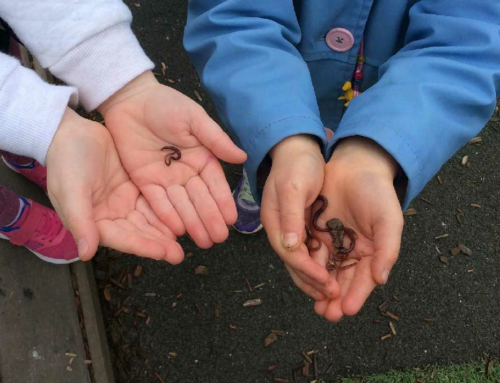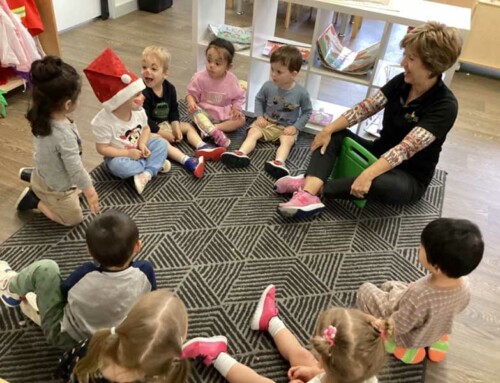Did you know that music games can help your child develop fine motor skills? From an early age, we often think of music as something fun to wiggle our bodies too. But it’s so much more. Fun, educational music games help infants and toddlers grow and learn in many ways.
When we consider how music affects young children, we think about musical knowledge and musical skills. It’s easy to overlook how children’s music develops confidence and other learning and life skills. Toddler’s music games promote creativity but also help build skills in:
- Literacy
- Language
- Numeracy
- Emotional
- Self-expression
- Communication.
We selected these 8 fun educational music games for their ability to delight, but also for the clever way they help young children to grow.
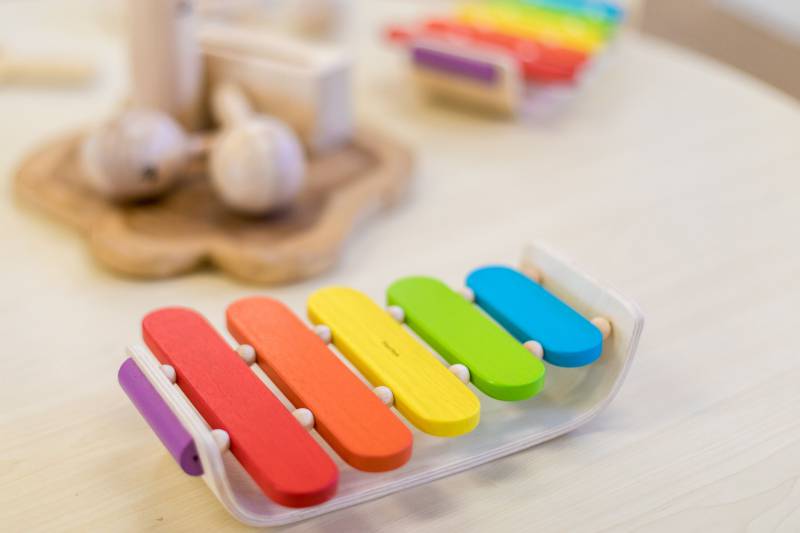
1. Singing nursery rhymes to develop literacy and language skills
Nursery rhymes help children to develop listening and speaking skills. A few minutes a day singing children’s music together can teach your child language, rhyme, rhythm and repetition.
Do you have any favourite nursery rhymes that you remember? If your memory is a little rusty head on over to Baby Karaoke for a refresher.
Some of our favourite songs include:
- Twinkle Twinkle Little Star
- Incy Wincy Spider
- The Wheels On The Bus
- Row, Row, Row Your Boat
- Children Of The Dreaming.
For older toddlers, encourage your child to act out the songs. You could place two chairs, one behind the other for the nursery rhyme, The Wheels On The Bus. Alternatively, create a pair of puppet socks and put on a nursery rhyme show.
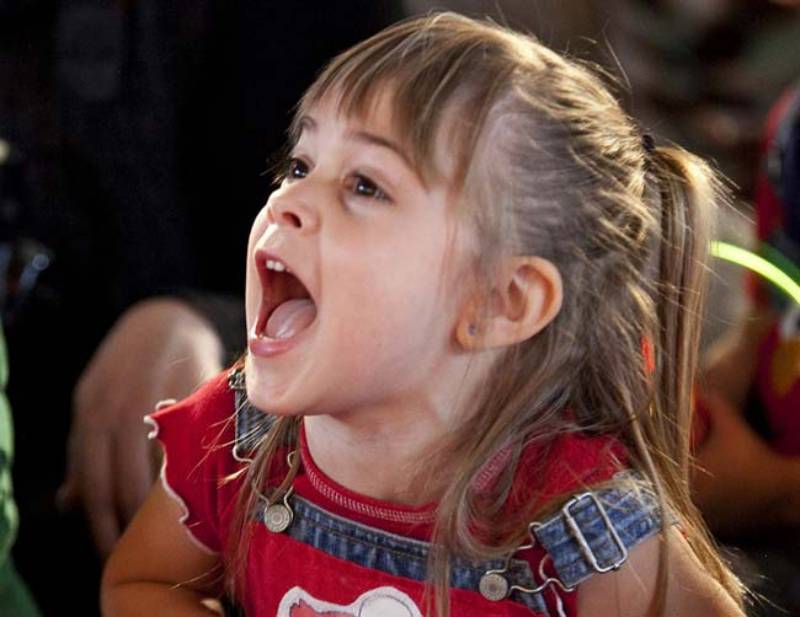
2. Counting rhymes improve mathematical skills
Counting rhymes develop basic numeracy and literacy skills at the same time. You can use your hands and fingers to show the numbers in the songs or use your child’s toys as props. Encourage your child to join in with their hands or toys as you sing and count together.
Try these fun counting rhymes with your infant or child:
- Five Little Ducks
- One, Two, Buckle My Shoe
- One, Two, Three, Four, Five
- The Ants Go Marching In
- This Old Man
- Ten green bottles.
Older children can join in and act out the counting rhymes or make up their own silly nonsense rhymes to the numbers.
You can also sing nursery and counting rhymes anywhere with your child. In the car, while shopping or as an outdoor game in the backyard or park.
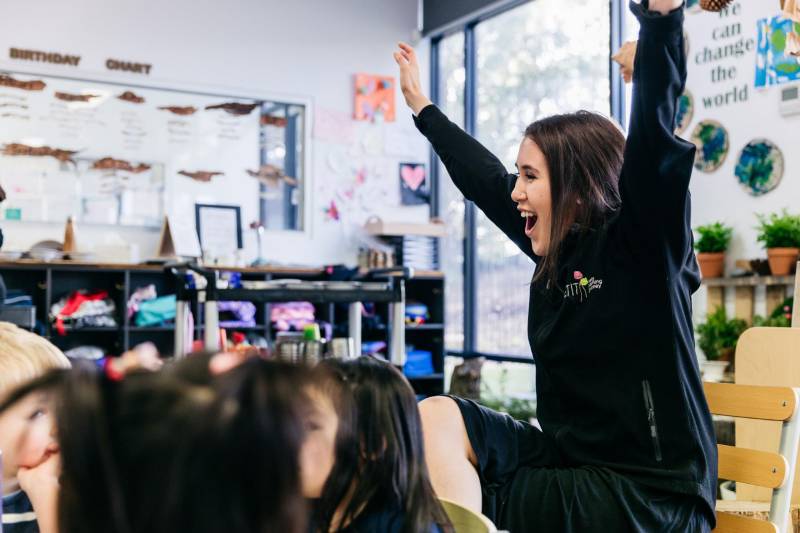
3. Learn children’s songs from other cultures
Rhyming and rhythm make it easier for children to pick up words and meaning from other cultures and languages. Together you can learn and sing children’s songs in other languages as well as English.
- Frère Jacques (Are You Sleeping) – Sung in French this song makes an excellent round
- Buka, Gatarr, Yukun, Dalpan (Head, Shoulders, Knees & Toes) – Sung in Yorta Yorta Aboriginal Language of North Eastern Victoria, Australia
- Wielie-Wielie-Walie (Willy-Willy-Wally) – A children’s song from South Africa sung to the tune from Ring a Ring a Rosy.
4. A parade makes for a fun music instrument game
This musical instrument game is excellent for playdates or sibling playtime. It’s also a perfect icebreaker game to have at parties, especially when you want to create a welcoming environment. A musical parade promotes social and emotional skills.
Gather together a range of “instruments” from around the house. These could be real or toy instruments but also household items. Think pots and pans, a pair of spoons or even a bottle that makes a fine whistle.
Let the children choose their instruments first, then you join in for a fun parade or marching and merry music making around the house. Younger infants not yet ready to march can still familiarise themselves with different instruments to discover their sounds.
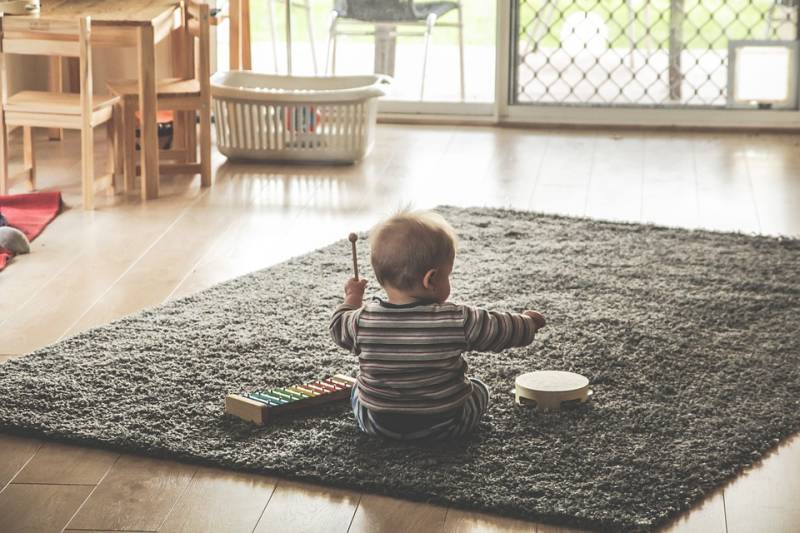
5. Freeze, a fun music dancing game
A favourite at parties, Freeze is a fun music dancing game that can also be played with just a few friends or with family members. It encourages self-control, by asking your child to stop as soon as the music stops and freeze in place until it starts again.
Freeze also promotes self-regulation by trusting children to know when they haven’t stopped in time and by watching and calling out each other’s behaviour. You can vary this music dancing game by adding fast and slow music. Ask your child to match the tempo with their dance moves.
6. Hot and cold music playing game
This music playing game is a favourite at all ages. It teaches toddlers listening and thinking skills and helps to refine the idea of opposites. Often played with the words hot, hotter, cold, colder, this variation swaps music for words.
Hide an object in the room. Ask your child to find it with the help of music. When they’re far away from the object, play very soft music. As they get closer to it, the music grows louder. When they’re almost at the object, play the music at its loudest.
You can play recorded music or use an instrument like a drum. Older children will also love this music playing game too.
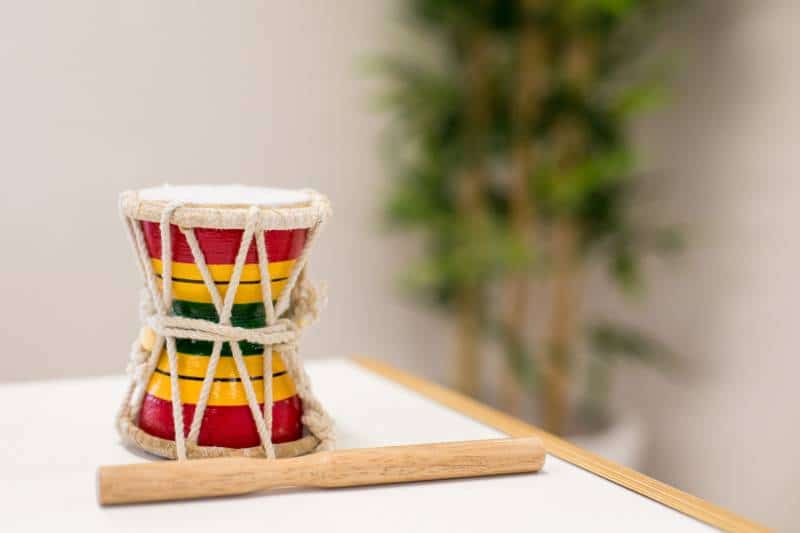
7. Let’s do the Hokey Pokey, an interactive music game
The Hokey Pokey is a fun, interactive music game that you can play with your child. It helps them to learn about body parts as well as the difference between left and right. It also promotes coordination and balance.
Sing the song for your child and mix up the order of body parts each time you sing it. This will help develop their listening skills each time you play this game together.
8. Feelings, an expressive music game for kids
This expressive music game for kids helps your child to express the way they feel. Collect a range of musical instruments from around the home. Don’t forget to include the essentials like a pot or pan and a homemade shaker.
Ask your child to select one instrument at a time. Can they use them to use it to make different types of feeling music? Ask them to use the instrument to express:
- Grumpy
- Happy
- Sleepy
- Sad
- Mad
- Joyful
- Bored
Use this music game to encourage them to test out sounds and expressions on different instruments.

Explore play-based learning and music games at Petit ELJ
As well as including music games for infants to toddlers in our play-based curriculum, Petit ELJ also has weekly music classes. Our centres create engaging learning experiences with music, dance and play for children from 0 to 5 years.
We also provide our parents with songs and rhymes used in the classroom to help with transitions between the studios and home. Book a tour and experience the Petit difference at your nearest Petit Early Learning Journey centre.
